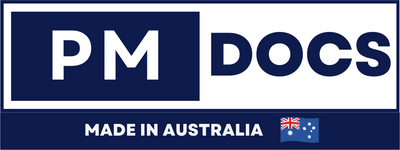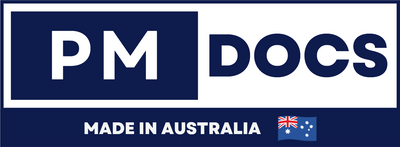Future Trends Of GDPR Toolkit In Australia
Introduction
The concept of a GDPR toolkit in Australia comprises a set of resources, strategies, and best practices designed to assist organizations in achieving compliance with data protection principles. As Australian businesses increasingly recognize the need to align with international data protection norms, the emergence and refinement of these toolkits will play a critical role in shaping the landscape of data privacy in the country.

Why Future-Proof GDPR Toolkits Matter For Australia?
As Australia navigates the complexities of data protection and privacy laws, the introduction of General Data Protection Regulation (GDPR) toolkits proves crucial. Here are several reasons why future-proof GDPR toolkits matter for Australia:
1. Enhancing Compliance with Global Standards - GDPR sets a high standard for data protection that many countries are adopting or aligning with. Future-proof GDPR toolkits will ensure that Australian businesses can meet international compliance standards, facilitating cross-border trade and partnership.
2. Adaptability to Evolving Regulations - Data protection regulations are constantly evolving. Future-proof toolkits are designed to be flexible and adaptable, allowing organizations in Australia to stay ahead of any regulatory changes or new guidelines that may arise in the future.
3. Protecting Consumer Trust - In an environment where data breaches and misuse are increasingly common, consumers are becoming more aware of their privacy rights. A robust GDPR toolkit helps Australian businesses safeguard consumer data, thus enhancing trust and loyalty amongst customers.
4. Mitigating Financial Risks - Non-compliance with data protection regulations can result in significant financial penalties. By investing in future-proof GDPR toolkits, Australian organizations can minimize the risk of costly fines and legal consequences associated with data breaches.
5. Supporting Local Innovation - With a stronger focus on data protection, Australian businesses can foster innovation while ensuring ethical data use. Future-proof GDPR toolkits will empower local startups and enterprises to develop new technologies without compromising consumer privacy.
6. Facilitating Better Data Management Practices - GDPR toolkits help organizations establish comprehensive data management practices. This will not only improve data accuracy and security but also optimize internal processes, leading to more efficient operations across various sectors.
7. Bridging Cultural and Policy Gaps - Australia has its unique cultural and legal landscape regarding privacy. Future-proof GDPR toolkits can bridge existing gaps by providing tailored solutions that respect local norms while fulfilling the rigor of GDPR requirements.
8. Educating Stakeholders - Awareness and understanding of data protection principles are critical across all levels of an organization. Future-proof GDPR toolkits will include educational components to ensure that employees at all levels grasp the importance of data protection.
Why The GDPR Toolkit Will Evolve In Australia?
As Australia increasingly grapples with the complexities of data privacy and protection, the need for an evolved General Data Protection Regulation (GDPR) toolkit becomes evident. Here are key points outlining why this evolution is necessary:
1. Increasing Public Awareness of Data Privacy - The citizens of Australia are becoming more aware of their rights regarding personal data. With global movements advocating for data protection, Australians are actively seeking transparency and accountability from organizations that handle their information.
2. Need for Strengthened Data Privacy Legislation - Australia's existing Privacy Act has faced criticism for being outdated and insufficient in protecting personal data. An evolved GDPR toolkit could provide the necessary frameworks and principles to enhance these laws, aligning them with global standards.
3. Alignment with International Standards - As businesses operate on a global scale, aligning Australia’s data protection framework with the GDPR is essential for compliance. This alignment not only facilitates easier trans-border data flows but also enhances Australia's reputation in international trade.
4. Addressing Emerging Technologies - With rapid advancements in technology such as artificial intelligence, machine learning, and big data analytics, the current privacy framework may not address the nuances of these technologies. An evolved GDPR toolkit can provide guidance on handling personal data ethically and responsibly in a technologically driven world.
5. Enhancing Organizational Responsibilities - Organizations are under increasing pressure to demonstrate their commitment to data protection. By evolving the GDPR toolkit, organizations can adopt best practices for data management, governance, and accountability, fostering a culture of respect for consumer privacy.
6. Encouraging Competitive Advantage - In a marketplace where data protection is increasingly becoming a selling point, organizations that adopt the GDPR framework can differentiate themselves. This evolution can lead to improved consumer trust and loyalty, providing a competitive edge.
7. Growing Regulatory and Legal Pressures - With regulators becoming more vigilant and the likelihood of stricter penalties for non-compliance, businesses in Australia may face rising legal risks. An evolved GDPR toolkit can provide the clarity and direction necessary to navigate these challenges.
8. Promoting Better Data Security Practices - Data breaches are becoming more common, leading to significant financial and reputational damage for organizations. A comprehensive GDPR toolkit can guide organizations in establishing robust data security measures to protect against such incidents.
Emerging Technology Trends Shaping GDPR Toolkits
As the General Data Protection Regulation (GDPR) continues to evolve, organizations are recognizing the importance of adapting their privacy management strategies. The integration of new technologies is transforming how businesses comply with GDPR requirements. Here are the key technological trends shaping GDPR toolkits:
1. Artificial Intelligence (AI) and Machine Learning - AI and machine learning algorithms are increasingly being utilized to automate data mapping processes, risk assessments, and monitoring compliance. These technologies can analyze vast amounts of personal data quickly, helping organizations identify potential vulnerabilities and ensure adherence to GDPR mandates.
2. Blockchain Technology - Blockchain provides a decentralized way to store personal data and manage consent. By allowing individuals to have greater control over their information, blockchain can enhance transparency and trust, which are critical under GDPR. Its immutable nature also ensures that any changes to consent records are securely documented.
3. Privacy by Design and Default - Emerging technologies are enabling companies to implement privacy by design. Tools that embed privacy features into their architecture—from secure coding practices to data minimization—help organizations proactively address GDPR requirements rather than reactively manage compliance issues.
4. Privacy Management Software - Comprehensive privacy management platforms are emerging to help organizations navigate their GDPR obligations. Such tools often include features for document management, data subject request handling, and compliance reporting, all of which simplify the process for businesses while ensuring compliance with regulatory standards.
5. Cloud Computing with Enhanced Security Features - The adoption of cloud-based solutions is revolutionizing data storage and management. Modern cloud platforms often come with built-in security measures and compliance capabilities that align with GDPR. These solutions provide ease of scalability and accessibility while ensuring that personal data is adequately protected.
Conclusion
Future-proof GDPR toolkits are not just tools for compliance; they represent a strategic investment in the trust, security, and innovative capacity of Australian businesses. By adopting such frameworks, organizations can better navigate the complexities of data protection while contributing to a safer digital environment for all.




